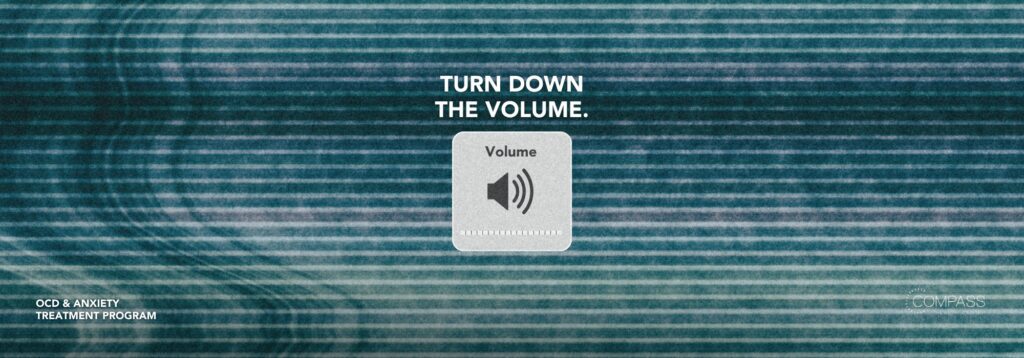
Ask the Expert: Mental Health Insights from Our Maryland Psychiatry Team
At some point in life, most people will encounter mental health challenges. Whether dealing with symptoms of one’s own or trying to support a loved one navigating new or longstanding symptoms, mental health challenges impact us all. It is sometimes hard to know what to do and where to go. In this blog, you’ll hear from four members of the Compass Psychiatry team who work with patients in Maryland, Virginia, and Washington D.C. as they answer commonly-asked questions about seeking help and supporting those struggling with mental health concerns.
- Beth Hope, LCSW, Sr. Director of Clinical Communication & Quality
- Dr. Marissa Leslie, MD, Child, Adolescent, and Adult Psychiatrist, Medical Director, Compass Health Center- Silver Spring
- Mary Swoyer, PMHNP-BC, Compass Health Center – Silver Spring
- Kandice King, PMHNP-BC, Compass Health Center – Silver Spring
- Phoebe Arbogast, MD, Adult Psychiatrist, Compass Health Center – Silver Spring
1. What advice do you have for teens who are struggling with depression and feel isolated from their peers?
Answered by Dr. Marissa Leslie, MD, Child, Adolescent, and Adult Psychiatrist, Medical Director, Compass Health Center- Silver Spring
“For teens, feeling isolated during depression can be incredibly overwhelming. First and foremost, it’s important to recognize that you’re not alone—many teens experience these feelings, even if it seems like no one understands. My advice is to share what you’re feeling with someone you trust. Then, I recommend starting small socially. It can be hard to connect to large groups of people but finding one person you can do something low stress with is a good start. Take a walk with them. Go get something to eat, if possible. Go out and people watch. This is a start to get you out of the isolation part of depression and to start recovering from your depression.
Social connection, even when it feels difficult, is vital. Joining a peer support group, whether online or in person, can help you connect with others who are going through similar experiences. Don’t hesitate to reach out and let someone know you’re struggling—help is available.”
2. What can young adults do if they feel anxiety is preventing them from reaching their full potential?
Answered by Mary Swoyer, PMHNP-BC, Compass Health Center – Silver Spring
“Anxiety can often feel like a roadblock, especially for young adults balancing work, school, and personal goals. The first step is to recognize that anxiety is manageable. It may help to start by identifying specific triggers or patterns that make your anxiety worse.
From there, focus on developing coping strategies—mindfulness techniques, breathing exercises, and even regular physical activity can significantly help reduce anxiety. Cognitive-behavioral therapy (CBT) is one of the most effective tools for managing anxiety and can help you shift the way you think about stressful situations. Seeking support from a therapist or counselor is a proactive way to address anxiety and keep it from holding you back.”
3. What’s the best way for adults to maintain mental health while balancing career and family obligations?

Answered by Kandice King, PMHNP-BC, Compass Health Center – Silver Spring
“Balancing career, family, and personal time can often feel like a never-ending juggling act, leaving you prone to burnout. One of the most important strategies for maintaining mental health is understanding that self-care isn’t a luxury—it’s a necessity. Begin by setting clear boundaries, both at work and at home, to avoid overcommitting yourself.”
4. How can families support a loved one who is dealing with significant mental health symptoms and aren’t sure where to turn or what they need?

Answered by Phoebe Arbogast, MD, Adult Psychiatrist, Compass Health Center – Silver Spring
“Supporting a loved one with severe mental health symptoms can be challenging, but families can play a crucial role. Start by creating a safe and open environment for communication, allowing your loved one to express their feelings without judgment. Educate yourself about their condition to better understand their experiences and needs. Encourage them to seek professional help, such as therapy or counseling, while offering to assist in finding resources or accompanying them to appointments. Be patient and empathetic, recognizing that recovery can be a long process. Regularly check in with them, offering reassurance and support, and consider involving support groups for both the individual and family members. Remember, it’s important to prioritize self-care for yourself, too, as you navigate this journey together.”
Closing:
Mental health challenges can impact anyone at any stage of life, and seeking help is a critical step in navigating those challenges. If you or a loved one are struggling, know that support is available, and you’re not alone on this journey. At Compass Health Center, we provide immediate access to support. Our multi-disciplinary teams, including a variety of specialists in many different roles, are here to answer questions and offer guidance. We are currently serving communities in Illinois, Maryland, Virginia, and Washington DC in person and/or virtually and our newest Wisconsin site is coming soon. We know that it can be a challenge to connect with a psychiatrist or psychiatric nurse practitioner quickly and when you need it. This is why our intake and admissions specialists are available seven days a week, including evenings and Compass patients can meet with a psychiatrist or psychiatric nurse practitioner within 48 hours of starting treatment. For more information about our programs here.

Further Reading
- How Do I Know Which Type of Mental Health Treatment is Right for Me? | A Clinician’s Guide to Understanding Levels of Care
- How to Ask for Mental Health Help
- Which Mental Health Diagnoses are Treated at the PHP and IOP Levels of Care at Compass?




